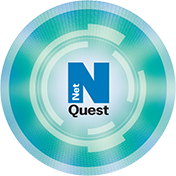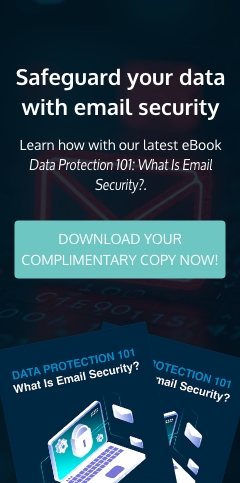Accounting firms have built their practices on being trusted with sensitive client information — tax returns, financial statements, personal information, and bank account information — that is stored and managed on a day-to-day basis in those firms’ computer systems. Firms have a responsibility to protect client data, ethically and legally under various laws, regulations, and professional standards.
Cyberattacks have become a common threat to an accounting firm’s data and can have serious impacts on companies and on their clients, through downtime, loss of business, large fines, and reputational damage. Cyberattacks come in many different shapes and sizes, such as cybertheft of personal information, ransomware, malware, adware, and email phishing — the list goes on. It’s unavoidably a part of the digital environment an accounting firm and other businesses must navigate.
Any one of these cyberattacks could devastate an accounting practice; thus, proactively taking cybersecurity measures is a business necessity. Here are some best practices.
Password policy and management
A secure password policy starts with strong passwords that are rotated and changed regularly. Password sprawl or the use of the same password across the many logins in an employee’s personal and work life should be avoided at all costs. Enlist the use of a good enterprise password management solution to efficiently control password credentials for accounts, services, systems, and applications used by your firm.
Employees who are security-conscious
Technology alone will not protect your firm from hackers preying on an employee’s ignorance and carelessness. Diligence on the part of a cybersecurity-trained employee is a must. Employees should be aware of red flags and vulnerabilities that may be entry points for attack, even in simple computing tasks such as checking email.
Email security
Email is a hacker’s favorite entry point for attacking a business. Apart from being aware of the cybersecurity risks inherent in email, accounting firms should add extra layers of security besides regularly changing strong passwords. Emails should be stored and sent via a secure server, one where emails are encrypted. Email accounts should also be protected by two-factor authentication (2FA) or multi-factor authentication (MFA), or an extra piece of information only the user can know or access.
Multi-factor authentication
MFA is not limited to email access. It also locks out unauthorized users from software or data that is password protected. Given the sensitive nature of the information they keep, accounting firms should use MFA across the board.
Data backup and recovery
How much will your accounting firm lose if its IT systems are down for a day? Downtime and data loss are real consequences of cyberattacks. Regular data backup is a must and will protect your data in a remote server in case of cyberattacks or destruction of hardware.
The best system of backup is virtualization, or making a virtual copy of your data servers offsite. This can be done as often as every 15 minutes with little or no performance lag to your system. Data can be restored quickly with an accompanying virtual host environment.
Drive encryption
Data encryption should be a regular practice for any accounting firm. Encryption should occur whether the data is at rest or in transit. Data on portable drives like flash drives should be inaccessible if ever such drives are stolen or lost.
A secure file or document management system
Given the amount of documents and data an accounting firm manages, it will need a secure document or file management system. A good management system will not only make it easier and quicker to access and share files, but will keep files secure through encryption and other security measures.
Mobile device management
Accounting firms should also ensure that mobile devices used by staff should be secure, in case they store client data. Mobile device management (MDM) software monitors and manages the use of mobile devices within your firm and allows administrators to quickly configure employees’ mobile devices and make them compliant with security updates and protocols. It also enables remote wiping of data on lost or stolen devices.
Updated operating systems and servers
Hackers can easily exploit computers with outdated OS. To prevent this, conduct regular operating system updates and patches for your computers and servers. These come with the latest security enhancements and address the security issues of the older versions.
Network security
Though not a complete internet security solution, antivirus software is a basic and indispensable cybersecurity measure that prevents, detects, and removes viruses and other malicious programs. Leading antivirus developers constantly update their software for the latest threats.
Another indispensable measure is a firewall to protect your firm’s network from unauthorized remote access and entry of malicious software. A firewall router should have gateway antivirus, gateway anti-malware, and intrusion protection to stop threats from entering your private network.
A virtual private network (VPN) is an encrypted virtual tunnel for your firm’s network, keeping it secure from outside access or from prying eyes when using public networks. Any remote access by your employees over public Wi-Fi to your network should be done with a secure VPN connection.
Wireless access to your network should likewise be restricted. Your visitors should use a guest network instead should they need internet access.
A managed services provider (MSP) is a multi-solutions technology company that can provide basic and advanced cybersecurity measures to keep your data safe and your clients happy. At NetQuest, we can provide the tools, guide your firm in securing its IT infrastructure, and train your staff in proactive security practices. Contact us today.
Like This Article?
Sign up below and once a month we'll send you a roundup of our most popular posts


